Youth Tune-in丨When "Apa Kabar" Meets "Nihao"…
Time:2025-09-29 16:35
See:
When the warm Indonesian greeting “Apa kabar” meets the Chinese “Nihao” by the assembly line or in language exchange corners, and when young Chinese and Indonesian employees become “bilingual bridges,” learning and growing together — a youth-driven, two-way journey of language and cultural exchange is quietly fueling both the human connection and the operational momentum for Conch Cement’s deepening roots in the “Land of Ten Thousand Islands.” In this edition of Youth Tune-in, we step onto this vibrant land to listen to a cross-cultural story woven from language and youth.
“Mr. Zhang, Tolong periksa mesin ini(Please check this equipment)!” Indonesian employee Ali naturally mixes English and Indonesian to make a request of a Chinese manager. Not far away, in the office, a Chinese finance manager smiles as she asks her Indonesian colleague: “How do you say ‘成本对标’ (cost benchmarking) more naturally in Indonesian?”
Scenes like these have long been common across Conch’s operations in Indonesia. For years, the Indonesian region has treated linguistic integration as a strategic priority, launching a bilingual learning initiative centered on “Chinese learning Indonesian, Indonesians learning Mandarin.” This effort continues to strengthen team cohesion and creativity within the Conch family in Indonesia.
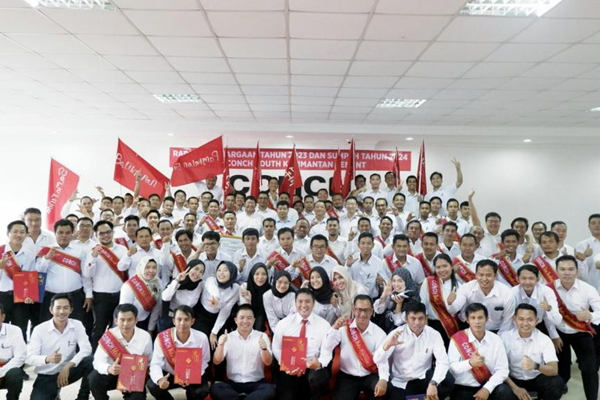
Breaking Barriers: From Uncertainty to Camaraderie
Language used to be the most tangible “wall” between Chinese and Indonesian employees.
“In the beginning, we completely relied on interpreters during meetings. Not only was it inefficient, but subtle expressions and emotions often got lost,” recalls one Chinese manager. Indonesian employees, in turn, often found it difficult to connect with their silent Chinese colleagues.
Without breaking the language barrier, development remained limited — it was both a stumbling block and a potential catalyst.
Thus, Conch’s Indonesia team unified around a vision for language learning, emphasizing warmth and fun in training. Companies integrated learning into daily operations — creating bilingual handbooks, designing comic-style PPTs, and holding immersive situational classes — making language acquisition feel less like a task and more like a natural part of communication.
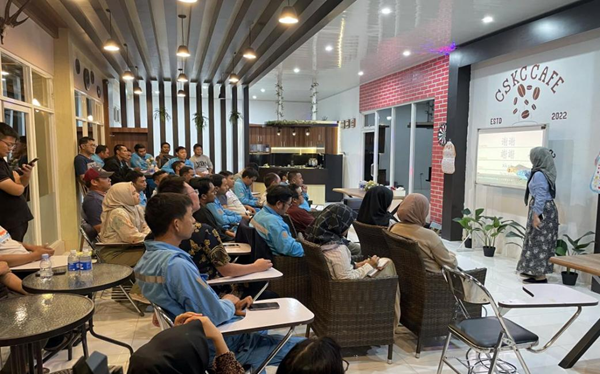
“It doesn’t feel like a class — it’s more like breaking the ice,” says Suprapto, an Indonesian employee. “We started from ‘Nihao’ and ‘terima kasih,’ then learned phrases like ‘恭喜发财’ (wishing you prosperity). Now we even celebrate Spring Festival together with our Chinese colleagues!”
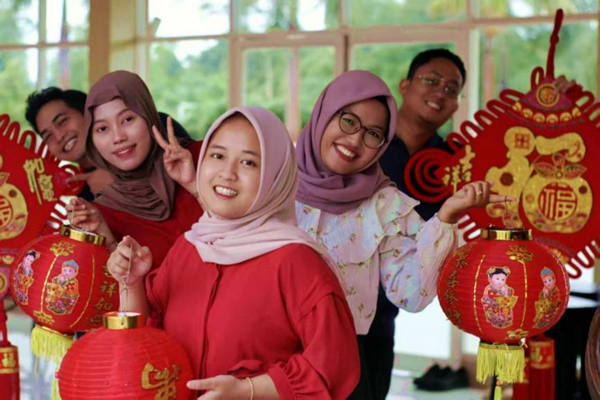
For Chinese employees, learning Indonesian is not only a “survival skill” but also a gesture of respect. Many take the initiative to study online and offline after work, learning not only work terminology but also local slang and jokes.
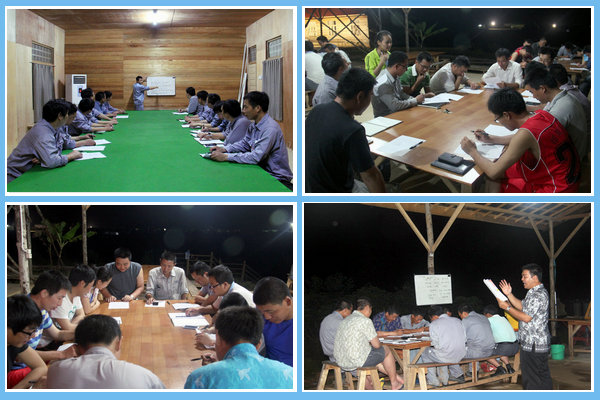
“The first time I cracked a joke in Indonesian with local workers, I could see the surprise in their eyes — the distance between us truly disappeared. Now we’re not just rekan kerja(colleagues), we’re teman(friends),” shares Wang Xiang, a Chinese employee.
Innovative Models: The Scent of Coffee in “Language Corners,” Bonds Forged Through “Buddy Pairing”
To make learning more grounded and human-centered, the companies have introduced a number of creative ideas.
At South Kalimantan Conch, the Chinese-Indonesian language corner meets weekly over coffee and snacks, encouraging open dialogue on themes like “safety production” and “local cuisine.”
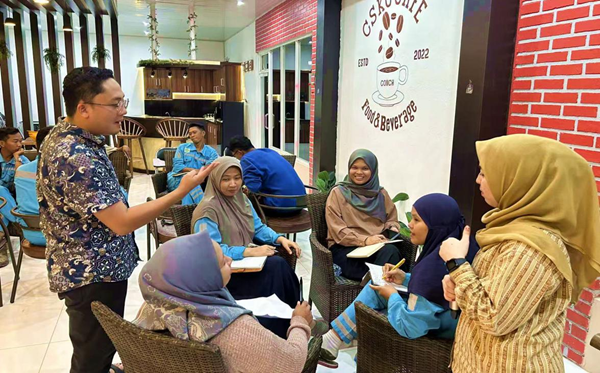
North Sulawesi Conch has moved its Mandarin corner into the employee club, where singing helps improve pronunciation and language intuition. “Singing helps me learn Chinese faster — I always look forward to these sessions,” says Jessica, an Indonesian manager.
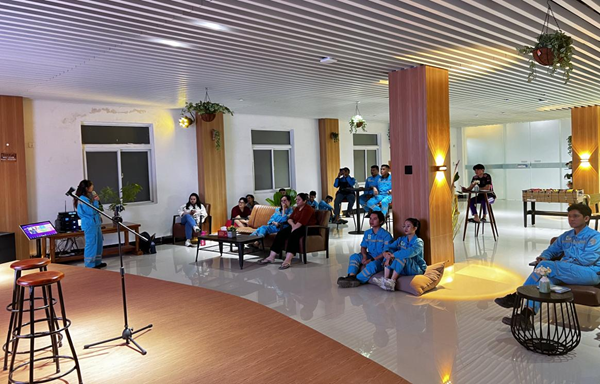
Even more impactful is the “Buddy Pairing” program, which teams up Chinese and Indonesian employees as mutual language coaches and cultural guides. This one-on-one companionship not only accelerates learning but also fosters a strong sense of camaraderie. During activities like tug-of-war and soccer matches, these pairs stand and strive together, further deepening their bonds.
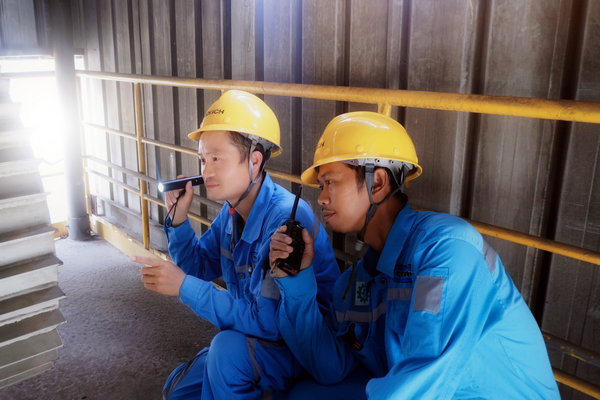
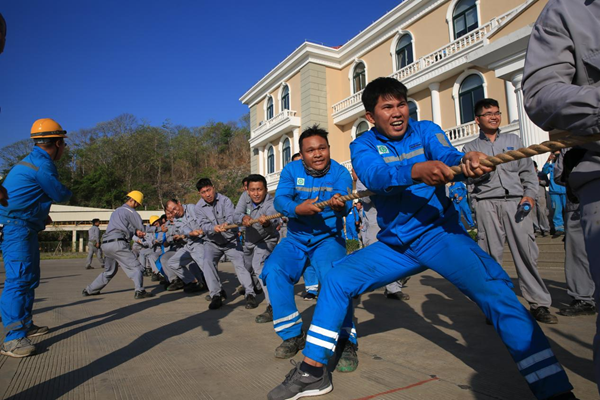
Tangible Outcomes: “1+1 > 2” – From Grouping to True Integration
The results of bilingual learning are reflected in both work efficiency and team atmosphere. Command delivery is more accurate, project meetings are shorter, and communication costs have fallen significantly.
Over 80% of Chinese managers can now assign tasks in Indonesian and engage in smooth dialogue with local employees. This has led to deeper understanding of the local market and culture, enabling more grounded decision-making.
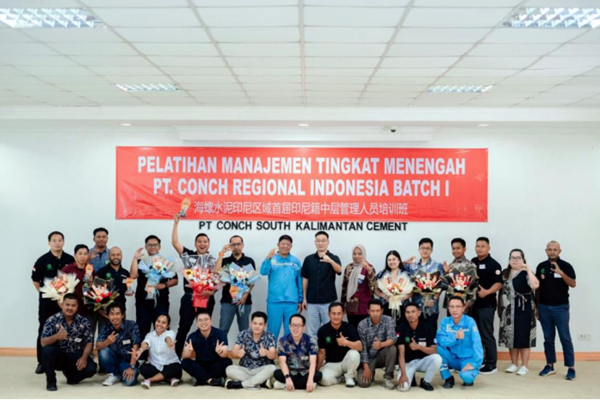
Nearly 30 key Indonesian employees have passed the HSK4 (Chinese Proficiency Test), allowing them to better grasp company strategy and technical standards. They have become solid bridges linking the company with local teams.
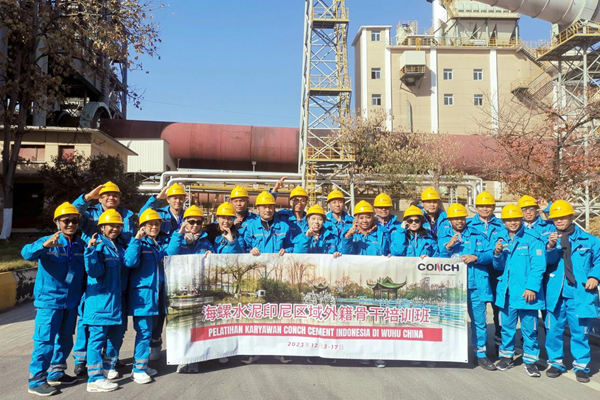
To date, the localization rate of Conch’s Indonesia workforce has exceeded 90%, with nearly 70% of management roles held by local employees. The company has developed 30 Indonesian mid-level managers and 327 technical supervisors — clear signs of a maturing local management structure.
More imBroadening Vision: From “Two-Way Exchange” to “Three-Dimensional Empowerment” – English Learning Opens Global Perspectivesportantly, the shared experience of learning has created countless common topics, gradually melting away cultural barriers and turning the team from a “physical grouping” into a “chemical fusion.”
If Chinese-Indonesian bilingual learning is the “root” of local immersion, then the new wave of English learning represents the “wings” for global engagement. In line with the Group’s international development strategy, Conch Indonesia recently launched the “5x30” English enhancement program for its Chinese management team — 30 minutes of practice daily, 5 days a week — using online courses, group discussions, and simulated international meetings to steadily improve business English skills.
At the same time, the company has strengthened English training support for Indonesian managers, aiming to build a trilingual (Chinese, Indonesian, English) international core team. This effort marks an upgrade in language training — from a “two-way exchange” fostering internal integration to a “three-dimensional empowerment” driving development.
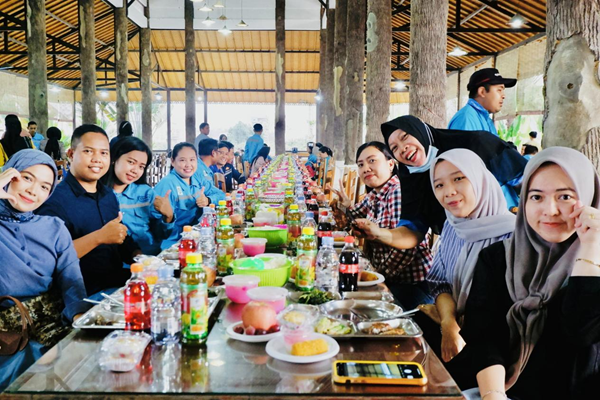
“Investing in employees’ language skills is investing in the company’s future. Language is a key — it unlocks not only communication, but also trust, innovation, and sustainable development,” said the head of Conch Cement’s Indonesia region.
Looking ahead, Conch will continue to deepen its bilingual programs and expand trilingual capabilities, making multilingualism its most unique competitive advantage and warmest cultural hallmark in Indonesia. What began as a “two-way journey” through language has now evolved into “three-dimensional empowerment” — becoming a profound process of Cultural Integration and Efficiency Revolution, continuously injecting soft power into Conch’s growth in Indonesia and contributing to a new chapter of development.